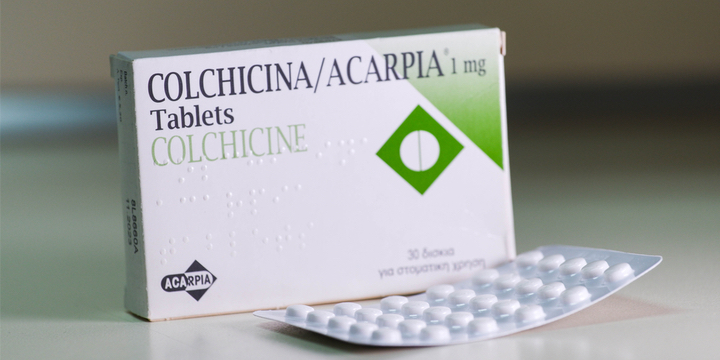A clinical study conducted on 4,488 patients affirms that colchicine, an anti-inflammatory drug, is effective in treating Covid and reducing the risk of complications related to the disease, announced the Montreal Heart Institute (ICM). Colchicine is a strong anti-inflammatory drug used for the treatment of gout.
Colchicine treatment would be effective in preventing the phenomenon of “major inflammatory storm” and reducing the risk of complications related to Covid-19, explained to AFP Dr. Jean-Claude Tardif, director of the Research Center of the ICM and principal investigator of the COLCORONA study.
Read also: What is Regeneron, the anti-Covid treatment on which Germany is banking?
Results to be qualified
However, according to Dr. Benjamin Davido, care should be taken with the announcement effect. “If the scientific results show any interest, so much the better. But they will not provide more than corticosteroids, ”drugs already used to treat severe forms of Covid, adds the infectious disease specialist.
The infectious disease specialist imagines that the functioning of colchicine must remain similar to that of corticosteroids. “Maybe we will have a synergistic effect between the two. But these drugs do not target the virus but the immune reaction, ”says the doctor.
“We have a better weapon”
In addition, colchicine becomes toxic in high doses. “The therapeutic index is narrow,” explains Benjamin Davido. This means that the toxic dose is very close to the dose at which colchicine is effective.
For this specialist, this study comes too late. “Today, the problem is to prevent patients from becoming more infected than to treat severe forms. For that, we have the best weapon, vaccines, ”affirms the infectious disease specialist. According to him, this is not only the case for Covid, but also for all viral diseases: “The vaccine is much more relevant. Antivirals are used very rarely. ”
The infectious disease specialist therefore recommends waiting for publication in a scientific journal before drawing conclusions. “We can no longer afford to comment on impressions and releases. We never heard from the molecule studied by the Institut Pasteur de Lille, clofoctol, ”he recalls.
 Cherry tomatoes contaminated with salmonella: 92 sick and 1 dead
Cherry tomatoes contaminated with salmonella: 92 sick and 1 dead  A better coaching method can make a person grow
A better coaching method can make a person grow  What is the method to prevent diabetes in children?
What is the method to prevent diabetes in children?  What are the effective factors in causing stomach ulcers?
What are the effective factors in causing stomach ulcers?  Why do embarrassing memories seem to appear at night?
Why do embarrassing memories seem to appear at night?  The amazing link between SARS-CoV-2 infection and newly started diabetes
The amazing link between SARS-CoV-2 infection and newly started diabetes  WHO says monkey pox is not a global emergency right now
WHO says monkey pox is not a global emergency right now  Single cell RNA sequencing uncovers new mechanisms of heart disease
Single cell RNA sequencing uncovers new mechanisms of heart disease  Hepatitis of unknown origin: 3 new deaths and 228 cases worldwide
Hepatitis of unknown origin: 3 new deaths and 228 cases worldwide 